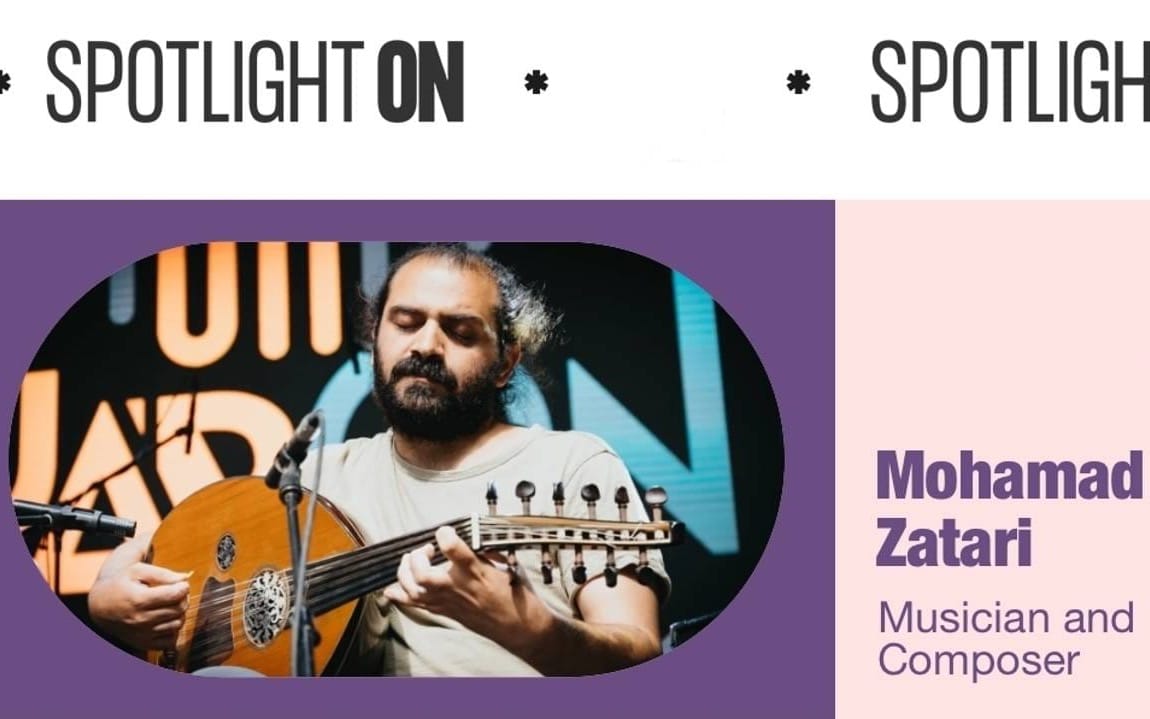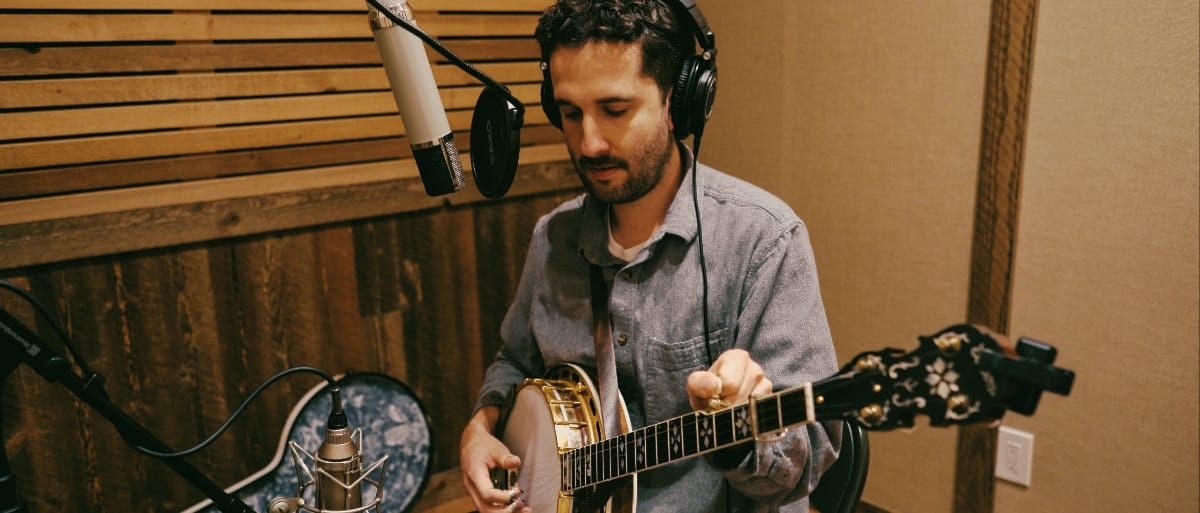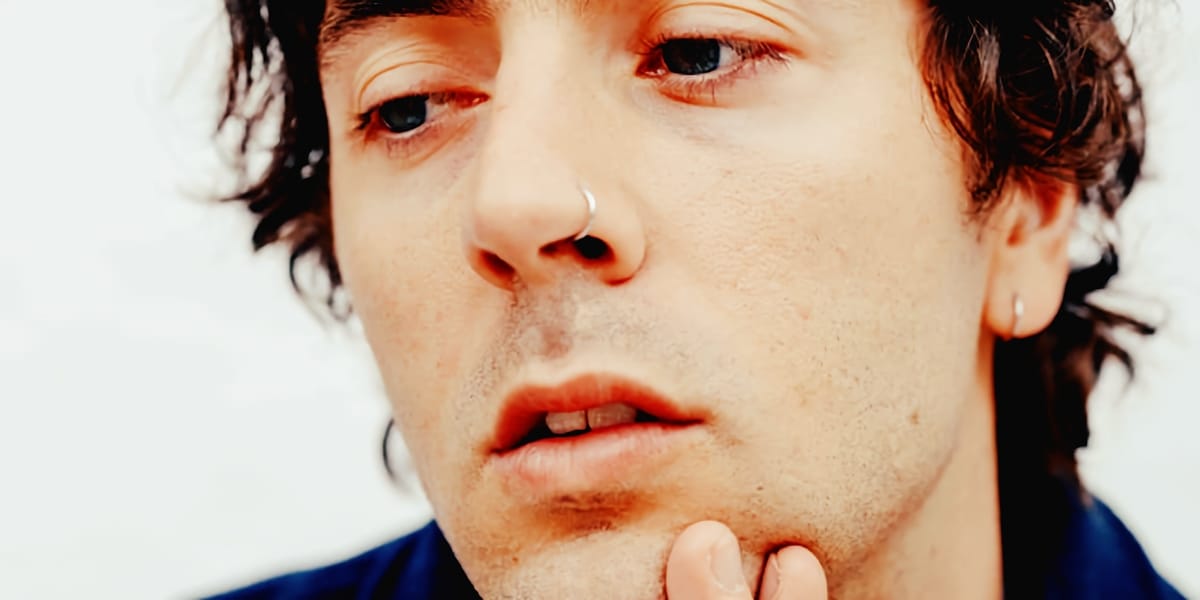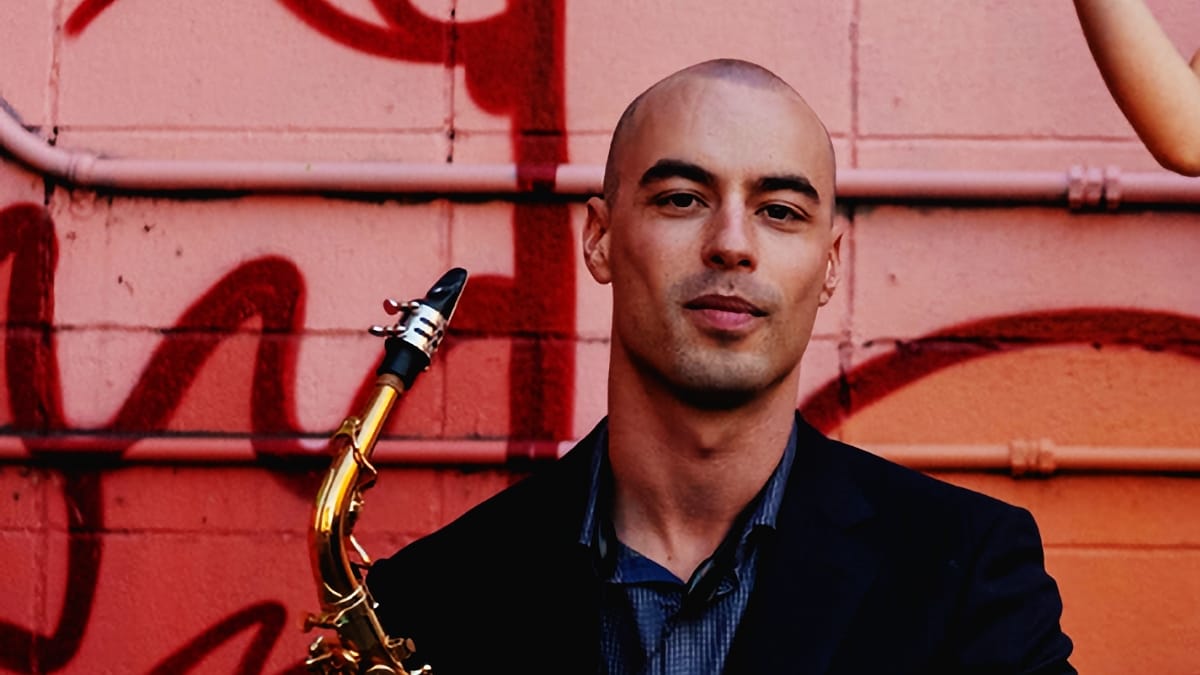Mohamad Zatari is an oud performer and composer originally from Aleppo, Syria. Currently based in Bucharest, Romania, Mohamad’s work has accompanied film and visual art; he performs widely and with musical partners from various and diverse countries.
The debut album by the Mohamad Zatari Trio, Istehlal (January 2023 on Berlin-based Zehra), was the pretense for our meeting. On that record Mohamad is joined by Avadhut Kasinadhuni from India on tabla and Sara Nezamoleslami from Iran on tar. Together, they create a thoroughly unique hybrid of music incorporating different lineages and points of view.
Intrepid music lovers can listen to and purchase Istehlal directly from the label on Zehra’s Bandcamp page. While listening to the album, learn more about Mohamad and all of his projects through his official website.
Mohamad creates contemporary music that is steeped in tradition but not held captive by it. A spirit of collaboration, understanding and sensitivity is evident not only in his music, but in this conversation.
Lawrence Peryer: When you first picked up the oud in your teenage years, who, if any, were the master musicians you admired or listened to? Who are the modern or living masters today that you admire?
Mohamad Zatari: If I remember well, the first time was in 2002, I was 14 or 15 years old. I think I tended to admire artists with a leftist reputation at that time, like Sheikh Imam, for example.
I still listen, until this moment, to Simon Shaheen, Anouar Brahem and many others. The thing is that the list changes constantly. I listened recently, via close friends, to some works of Lloyd Miller and Ornette Coleman that are related to Middle Eastern and North African cultures. Their effort to make an authentic connection is fascinating.
LP: Simon Shaheen’s recordings of the music of Mohammad Abdel Wahab are really some of my favorite recordings in any style of music. So incredible.
Can you tell me a little more about what you find intriguing about Miller and Coleman’s work in this area, or what you perceive that indicates the authenticity in their approach?
MZ: The effort made by Miller to learn Farsi as well as his diving deep into local instruments and microtonal systems in a time when that information wasn't easy to get is really to be appreciated. Coleman’s approach was different, if we are talking about the track “Midnight Sunrise” with the Master Musicians Of Jajouka; It’s such a raw melting into the texture made by that collective. Both artists went way beyond exoticism.
LP: Elsewhere, you have referenced playing piano. Did you receive formal training on that instrument, and do you use it to compose?
MZ: Well, I can't say that I received formal training on this instrument, nor that I even play it. I started at some point to self-study it, just to understand it, helping myself with harmonic ear training, using the Suzuki book, an illegal copy. :)
However, at the conservatory of Bucharest, we had each semester a set of piano works we had to learn, each one on her/his/their level. But yes, from time to time it helps me in experimenting with some colors.
LP: What is your experience of moving between playing on microtonal instruments and playing in a 12-tone context? Could you elaborate at all on the unique expressive characteristics of each?
MZ: It gets problematic even between two different microtonal systems (Arabic vs Persian, for example). It really depends on the context you are involved in. Sometimes I just adapt myself to the 12-tone collective, maybe I do some small chromatic tricks that bring the feeling of a certain maqam. Sometimes I push the musicians to the microtone if I feel their desire to play it, especially if it's written to be a microtone. Or, for example, if I’m playing with jazz musicians, we just get melted in each other's improvisations although we are thinking totally differently. Sometimes the clash is intended. :)
LP: I can see the value of the ‘clash’, and how it can lead to new sounds, or interesting musical outcomes. I recently spoke with the Australian bass player, Christopher Hale, whose new album is a collaboration with Korean ritual drummer Minyoung Woo. The music is very much contemporary jazz, but Christopher spent the better part of ten years studying the music of his collaborator so he could get to the essence of the music, or more specifically, what it was that Minyoung had to be uniquely good at or knowledgeable about to master her own musical tradition, so he could write music to play with her that spoke to her specific abilities. The resulting music does not sound like jazz plus Korean drumming. Instead, it incorporates the Korean drum but also the Korean drum forms at the compositional level. It is much more of a dialogue and true collaboration of spirit than a mere fusion. As you said above, it goes “beyond exoticism.” What are your thoughts on an approach like that?
MZ: It sounds to me like how to be a good and aware composer, because sometimes the listener really feels the different worlds the musicians are coming from and it feels that they are not merging (as you said, “jazz plus Korean drumming”). I’m already listening to the release. :)
However it really depends on your perspective. Sometimes, as an improviser, you just let the flow go on with your naiveté and let the present sound lead you.
LP: For a listener who grew up with primarily 12-tone, Western music, who perhaps hears Arabic and Ottoman music as “exotic” or even “ancient”, could you name specific pieces or perhaps composers or performers that you deem “essential” in the folk or Classical traditions you grew up around?
MZ: I think this has to do with musical colonization, am I right? It’s the cultural image people in the West grew up with. I mean, yeah, Ottoman musical periods are indeed something similar to the baroque-classical-romantic periods in European music (I'm simplifying too much here haha). However, music in North Africa and West Asia is alive music that brings a wide range of emotions.
These days, I’m rediscovering Baligh Hamdi as a visionary, open minded and honest artist. Sabri Mudallal, for instance, is a quite representative voice of Aleppo and the city is full of local genres. Munir Bachir, an oud master from Iraq, used to live in Hungary, I guess. You can name many and I’m aware that I’m too subjective in my choices.
LP: You raise a vital point here, two, actually: One is the topic of musical or cultural colonization and the other is the related topic that these are not dead musics, or musics frozen in time, they are living traditions, still evolving. I would think it takes an open ear as well as an open heart on the part of the listener to understand those points, that while the music “sounds” a certain way to the ear of another culture, one must understand the cultural baggage or conditioning they bring as listeners, and perhaps commit to learning about the music and its cultural context. Do you agree with that at all? Could you share thoughts on what you think the role or responsibility is of the listener when they approach music from outside of their own cultural tradition?
MZ: Well, at the end of the day I think we are still in the very beginning of the way towards cultural empathy, as a part of the whole empathy between creatures on this earth. The listener's awareness about the sound they are hearing is a good step. However, maybe many factors are also limiting the intention of this empathy and awareness, like the economic system for example.
LP: Could you talk a little bit about your relationships with the other members of the Mohamad Zatari Trio, Avadhut Kasinadhuni and Sara Eslami? Specifically, how important is a kinship outside of your musical relationship and could you describe the value or importance of each of you coming from three different countries? There are many unique elements - musical, cultural and otherwise - that you each must bring to the Trio.
MZ: You get into a very interesting point on MZ Trio. We are actually three totally different characters, even politically, meeting literally because we love what we are doing together, and it's quite enriching.
Aesthetically, each one of us is coming with a whole different musical system on her/his back - the modes, the way of improvising, the way of writing, the ornaments, the timbers, the melodic flow.
One funny thing happens generally when we meet outside of rehearsals: almost each time we have to talk comparative linguistics and to find common words between Persian, Arabic and Hindi.
LP: That’s fascinating. I read something similar with actors of Chinese descent who made a film together. One grew up in Malaysia, one on the mainland and one in Hong Kong. Their language differences were beyond mere dialect. They had to take time to find ways to be able to understand each other – and the script!
In reading other interviews with you, I have developed the assumption that you are fairly secular in your views and beliefs. If that is true, could you speak at all about your interest in or encounters with some of the more mystical or universalist spiritual elements in some of the music of the regions you incorporate? What relationship or point of view, if any, do you have with Sufism or other paths?
MZ: Part of me enjoys the Quran reciting. The Quran reciters are an important part of maqamic improvisational tradition, significantly elaborated. And, I come from Aleppo, a city that has a big reputation in Sufi rituals. I've been in some when I was a teenager, I would say as anybody could have been in my place, It's quite a psychedelic experience. The collective voices, the keep of the beat, the movements. Some of them are totally aware music-wise, they are music masters in the region. Some put more emphasis on the ritual itself and make it more “wild”, let’s say. I find the Sufi rituals a really important subject to spot. The encounters are extremely different from many aspects, from India to Morocco and everything in between.
LP: My (limited) understanding is that the reciting of Quranic verse according to the melodies of maqaamaat, is, like Sufism itself, controversial or even forbidden in some interpretations. That said, nearly every religion has differing perspective amongst its adherents regarding the role of representing the divine voice or words and certainly not all mystical traditions are welcome in their dominant religion. I must say, though. that I recognize what you are saying about the psychedelic or ecstatic nature of the repetitive drumming and movements, chanting or speaking the Names, etc in Sufi dhikr. These are deliberate acts and rituals meant to conjure a specific state for the participants. For a time, I studied with a Sufi order with a Turkish lineage and a weekly communal dhikr was a very important element of the practice, binding the community but producing exactly the experiences you refer to.
May I ask, if it is not too intrusive, what your current and ideal future relationship is with Aleppo? Do you identify with it as “home” and under what conditions is a return there possible or desirable?
MZ: Oh wow, that’s something I’m actually avoiding answering even to myself. I’m gonna try to put it into words: In the near future I don't find myself staying in one place. The idea of “home” is becoming more and more abstract. Nevertheless, I still define myself as an Aleppian, “Aleppian nomad”, let’s say.
Maybe in my subconsciousness there's this obsession about what I can bring from and into this exhausted city.
There is no way back as long as the dictatorship is still in place.
###
For more about Mohamad Zatari, please visit his official website.







Comments